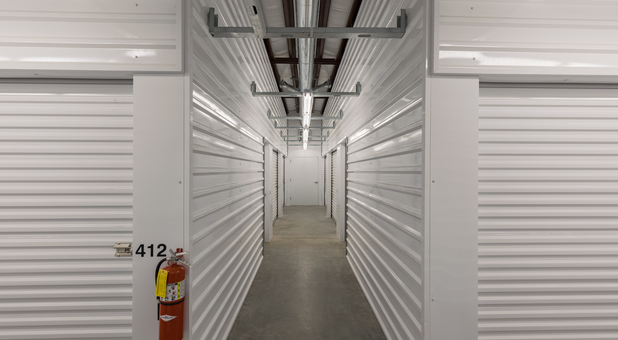
Hazardous, Risky, and Off-Limits Items Explained
Storage units aren’t dumpsters or bank vaults. They’re shared spaces designed to be secure, clean, and predictable. Rules exist to protect you, your neighbors, the property, and first responders. In almost every lease, you’ll find restrictions that come down to four big risks: fire/explosion, contamination, pests/odors, and theft/liability. If it leaks, spoils, burns, attracts critters, or could get someone hurt, it doesn’t belong in a unit.
The Definitive “Do Not Store” List
1) Flammables, Fuels, and Combustibles
Gasoline, diesel, propane tanks, butane, kerosene, lighter fluid, paint thinners, solvents, aerosol cans, and most camping stove fuel are off-limits. Vapors can ignite, containers can rupture, and even “empty” tanks can be dangerous.
Better option: Store fuels at home in approved containers per local code, return propane tanks to certified exchanges, or take them to your county’s Household Hazardous Waste (HHW) facility.
2) Explosives, Fireworks, and Ammunition
Anything designed to detonate or combust is a hard no. That includes fireworks and most ammunition.
Better option: Use a licensed firearms or sporting-goods facility for guidance, or store legally at home in approved containers as allowed by local law.
3) Toxic, Corrosive, or Reactive Chemicals
Acids, bleach in bulk, pool chemicals, pesticides, fertilizers, automotive fluids (coolant, brake fluid, motor oil), and industrial cleaners can leak, react, or off-gas.
Better option: Keep small, household quantities at home in labeled, upright containers; take surplus to an HHW site.
4) Pressurized or Hazardous Cylinders
Propane, oxygen, acetylene, CO₂ beverage cylinders, and scuba tanks are typically prohibited due to rupture and explosion risk.
Better option: Leave them with the supplier or store per manufacturer guidance at approved locations.
5) Perishables and Any Kind of Food
Canned goods, pet food, rice, flour, spices, and even sealed snacks can attract pests and create odors. “Just a few groceries” quickly become a pest problem.
Better option: Keep food at home; donate shelf-stable items to a local pantry if you’re between moves.
6) Living Things (and Things That Were Recently Alive)
No plants, no animals, no aquariums with water. Plants bring in bugs and mold; aquariums ...
Admin
August 27th, 2025